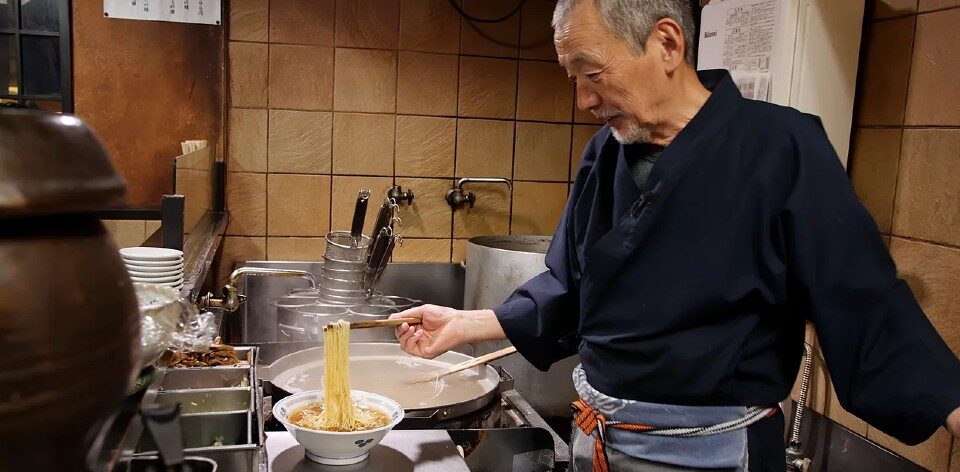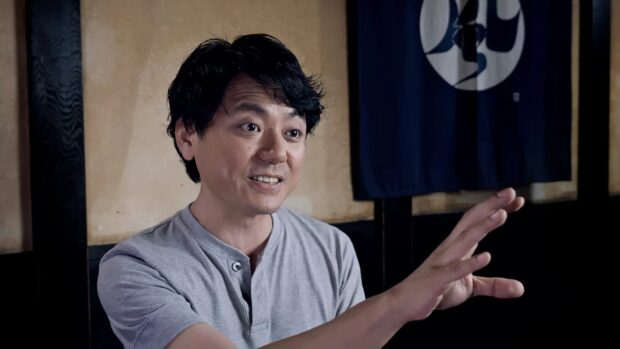In Chiyoda, the political heart of Tokyo, there is an ramen shop named Bizentei. Run by self-taught ramen master Masamoto Ueda, he only serves three kind of ramen — and has been doing it for more than forty years. “I’m just an old guy doing what he knows,” says Ueda.
Judging from COME BACK ANYTIME (またいらっしゃい), the debut documentary from filmmaker John Daschbach (Brief Reunion), what Ueda knows is how to make a simple and tasty ramen dish and keep a loyal customer base. Necessarily recalling the classic ramen western Tampopo (1985) and David Gelb’s Jiro Dreams of Sushi (2011), Daschbach’s film isn’t just another addition to the food porn genre (although it ticks this box). It’s a story of the community that Ueda built around his unassuming restaurant.
Before we learn anything about the man behind the broth, Daschbach introduces us to the people who eat his ramen. As they recount the first time they tasted his soy-based ramen, it’s clear that it means something more than just a lunchtime meal to the patrons. “Just like the taste of mum’s cooking,” says one regular. Another interviewee is a ‘ramen expert’ who claims to have tasted between 500 and 600 bowls.
Ueda’s philosophy is presented as something he just does, rather than any specific perfection he was working towards. “I don’t use anything cheap, but nothing special either,” he comments. Once could argue that there must be something special about it, as we watch him foraging through the forest for ingredients before journeying to his farming hobby. Naturally, Ueda ferments his own pesticides.
Through a series of casual exchanges, we learn about his history, his family and his admirers. There’s one story of a woman who lost several people in her life, and found the community at Bizentei around the time of her personal tragedies. It’s from her that we get the film’s title: Ueda reportedly told her that she was welcome to “come back anytime.”
Arguably could have been a short film, or an episode of Chef’s Table, but if this film teaches us anything, sometimes things just take the time they take. There’s no drama in Ueda’s story. This is simply a snapshot of a man who makes ramen and what that means to all the people who encounter it. Even as a viewer, it’s hard not to want to crawl inside the screen to and be part of the community. Daschbach’s skill her is in stripping back this profile to its most important part. Or, as Ueda might put it, “You just skim the scum and it becomes nice and clear.”
2021 | Japan | DIRECTOR: John Daschbach | CINEMATOGRAPHY: John Daschbach | CAST: Masamoto Ueda, Takashi Tanaka | DISTRIBUTOR: MIFF 2021 | RUNNING TIME: 81 minutes | RELEASE DATE: 5 – 22 August 2021 (MIFF 2021)







